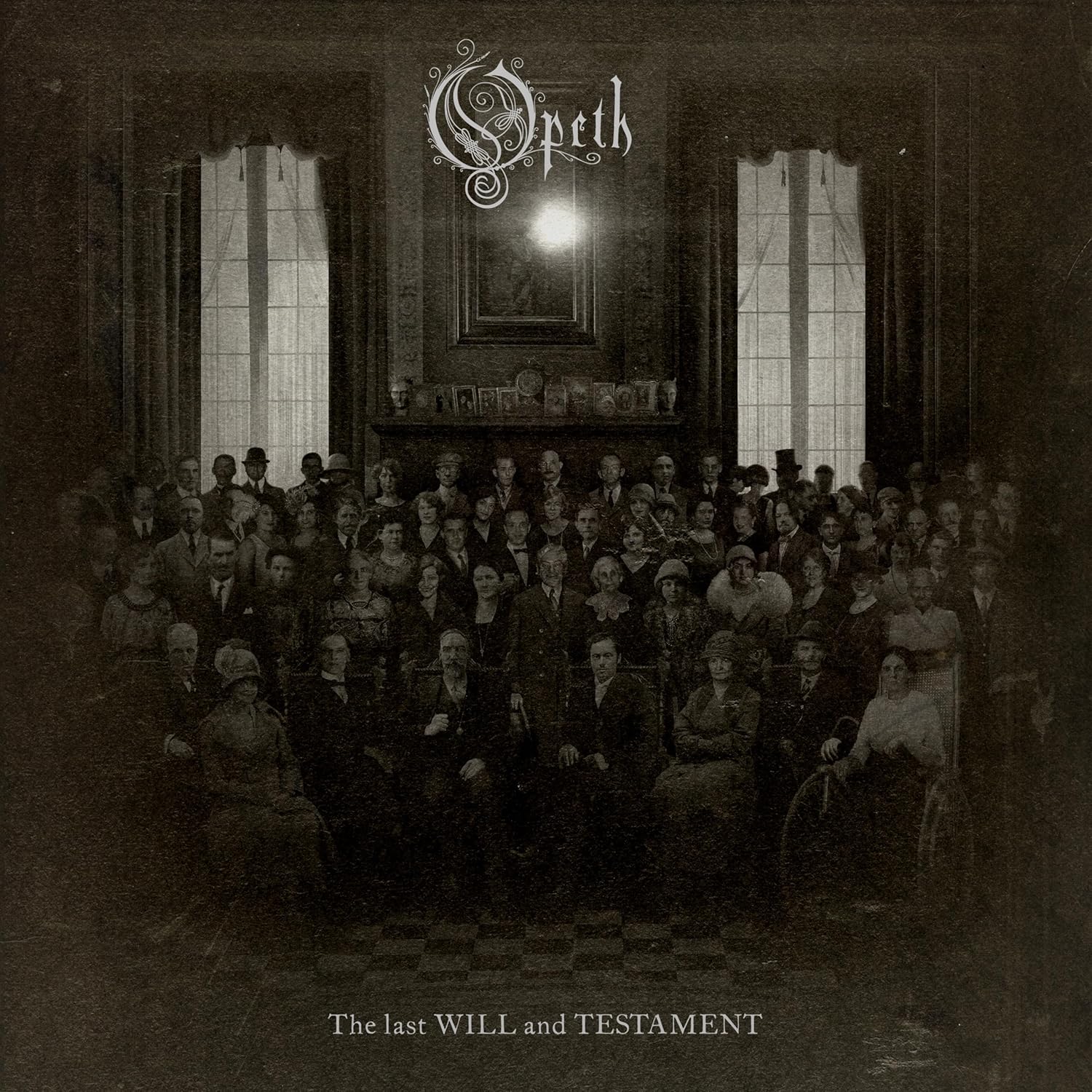It's pretty obvious that after 30 years or so of leadership in Opeth, a Swedish band which has achieved notable international success in several 'difficult' genres - death metal, progressive metal, heavy progressive rock - Mikael Åkerfeldt is clearly writing and making music to please himself. As he's so often said, Opeth sounds like no other band and he intends to keep it that way. While Opeth occupies a fairly unique niche that Åkerfeldt has carved out of the musical landscape, like other auteurs (Steven Wilson!) he is not immune to boredom, restlessness and a desire to keep things interesting for himself. To that end, he has fearlessly evolved Opeth's music over the years from hardcore death metal to progressive folk to progressive rock, forcing fans to go along with the changes or fuck off.
I've watched a couple of documentaries about the making of Last Will And Testament and was struck by a couple of comments Mikael made about the latest changes. He said that after growing increasingly bored and constrained with death metal growls and tropes, he evolved Opeth's sound to what became a fairly pure progressive rock, starting with the album Heritage. But after the release of In Cauda Venenum, the 4th progressive rock album in a row with no growls, he felt that he was "completely done with that sound", that he had satisfied his personal goal of writing what to him was "pretty music" and had nothing more to say in that vein. In addition he was a bit amused, and challenged, to prove some naysayers wrong when they alleged that he had lost the ability to growl convincingly. But he also wanted to apply the growling, and heavier riffing, to a project where that made sense organically and wasn't just an empty exercise.
Which brings us to Last Will And Testament. Inspired in part by binge watching Succession, and looking for a suitably dark subject for a heavier record, he came up with a gothic tale of the reading of the will of a nasty wealthy man where dark family secrets are revealed to the dismay of the survivors. Although this album has been pretty much showered with praise from the mainstream press, I suspect it will be a challenging, even difficult, listen for many people. First and foremost, this is a concept album which tells a story - tracks 1-7 do not have titles, rather they are listed as Paragraphs 1-7 and are meant to be listened to in order all together, as in the reading of a will. Most of the time they flow into one another seamlessly. Only the last track is given a proper title because it is a coda to the main story and contains a little stinger.
Musically, Mikael has accomplished something fairly remarkable here. Not only has he resurrected his terrific vocal growling and heavy riffing which characterized Opeth's earlier sound, he has also retained much of the progressive rock structures and instrumentation developed over the last 4 albums. Not only that, he has recruited none other than Ian Anderson to provide spoken word and flute on several tracks to great effect. The album also includes several orchestral string arrangements adding to the atmosphere. In short, he has successfully blended both eras of Opeth (death and prog) into a unified sound rather than alternating between them as was done in several albums leading up to Heritage. Mikael Åkerfeldt has created something a bit old, a bit new, but still very much Opeth. Make no mistake - this is a very dense and occasionally challenging album that rewards multiple listens. The production and sound is excellent - possibly the best I've heard for an Opeth album. Bass is deep and satisfying and the highs are clear without sounding harsh - this is very crankable. The Atmos mix is also very good with all channels constantly active. Voices and percussive effects appear in the overheads and sides and rears, often panning or alternating from side to side. It may not be quite as good as the best Steven Wilson mixes, but to me it sounds very good. For the music and the concept I'm rating this a 9. I expect appreciation for it will grow over time. For the surround mix and packaging, I was tempted to give it a 10, but deducted a point because there is no dedicated 5.1 mix, and I would really like to have gotten an instrumental mix. In short, the blu-ray is a bit light even though the documentary is good. Overall then, a solid 9. Opeth fans should be very pleased, but everyone's mileage will vary.


























